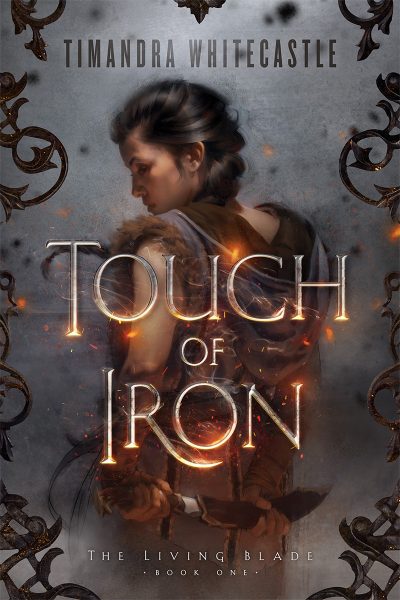★★★
“You’re never going to get to where you’re going if you acknowledge fear.”
 The profession of journalist is not exactly well-regarded by many people these days. So it’s nice occasionally to be reminded that they can still potentially be action heroes, risking their own lives in pursuit of the truth. In this case, it’s Marie Colvin (Pike), a foreign correspondent for London’s Sunday Times newspaper, who lost an eye while covering the civil strife in Sri Lanka, leading to a piratical eye-patch for the rest of her career. Most people would treat that as a sign from the universe to look into a change of profession. But Colvin was made of sterner stuff, despite a hellacious case of post-traumatic stress disorder, with which she largely coped by drinking heavily. So she and photographer sidekick Paul Conroy (Dornan) continue to venture into the world’s hot-spots, whether it’s Iraq, Libya or Syria. There, they expose the terrible human cost that the conflicts have on the local population, without apparent concern for their own safety.
The profession of journalist is not exactly well-regarded by many people these days. So it’s nice occasionally to be reminded that they can still potentially be action heroes, risking their own lives in pursuit of the truth. In this case, it’s Marie Colvin (Pike), a foreign correspondent for London’s Sunday Times newspaper, who lost an eye while covering the civil strife in Sri Lanka, leading to a piratical eye-patch for the rest of her career. Most people would treat that as a sign from the universe to look into a change of profession. But Colvin was made of sterner stuff, despite a hellacious case of post-traumatic stress disorder, with which she largely coped by drinking heavily. So she and photographer sidekick Paul Conroy (Dornan) continue to venture into the world’s hot-spots, whether it’s Iraq, Libya or Syria. There, they expose the terrible human cost that the conflicts have on the local population, without apparent concern for their own safety.
It’s not a spoiler to say this doesn’t end well, for Colvin was indeed killed in Homs, Syria in a January 2012 explosion. And that’s kinda the thing which both drives the narrative and irritates the heck out of me. The film opens and closes with the quote from its subject at the top. However, to counter-quote her with Arthur Conan Doyle, “It is stupidity rather than courage to refuse to recognize danger when it is close upon you.” As depicted here, it seems as if the journalist almost had a death-wish, spitting in the face of danger long past what was prudent or even had much purpose. There’s little or no acknowledgement by Colvin that a dead writer won’t be able to achieve much. If you don’t get out safely to tell the stories you have gathered, what’s the point? You can argue, to some extent, it’s this and her other flaws which render its heroine human.
On the other hand, I found it extraordinarily hard to relate to Marie, with her choices and subsequent actions being so entirely alien to me. She insists on getting right to the core of suffering, even if this means asking its subjects brutal questions. Is this laudable journalism? Or a close cousin to the reporters who shove microphones at victims of tragedy and ask, “How do you feel?” Director Heinemann was responsible for the very good documentary Cartel Land, but seems to struggle a bit when he has to generate the narrative, rather than just recording it. We get only fragments that hint at Colvin’s character, such as a habit of wearing expensive bras, because she declares, “If anyone’s gonna pull my corpse from a trench, I want them to be impressed.” While there’s no denying the bravery of her chosen profession, or her qualifications for this site (albeit in the unorthodox wing!), and former Bond-girl Pike is excellent, I wasn’t left with any deeper appreciation of the why, rather than the how, of her life.
Dir: Matthew Heineman
Star: Rosamund Pike, Jamie Dornan, Tom Hollander, Stanley Tucci





 Former WWF star Lesseos, where she was known as the Fabulous Mimi, carved out a small career for herself in low-budget action films, mostly in the mid-nineties. Though the ones we’ve covered before, such as
Former WWF star Lesseos, where she was known as the Fabulous Mimi, carved out a small career for herself in low-budget action films, mostly in the mid-nineties. Though the ones we’ve covered before, such as  Owen and Noraya Smith are twins, in a world where such siblings are looked upon as cursed. Brought up as charcoal burners, they leave their village so Nora can avoid an arranged and unwanted marriage, and have the forture – whether good- or ill- remains to be decided – quickly to encounter the party of Prince Basham. He is scouring the country in search of a magical artifact called the Living Blade, which will grants its wielder great power. Assisting him is the half-wight Telen Diaz, a pilgrim/fighter. Owen joins the party, hoping to become a pilgrim himself; Nora decides to return home, but that option is removed from her as the village has been taken over by bandits. Fortunately, Diaz has followed her and is able to lend assistance when necessary. Nora eventually becomes his student in the fighting arts, and they all head to the temple/brothel of Shinar where the immortal seer Suranna can provide insight to the blade’s location. But the cost of her information is perilously high, since she has plans for both Nora and Diaz.
Owen and Noraya Smith are twins, in a world where such siblings are looked upon as cursed. Brought up as charcoal burners, they leave their village so Nora can avoid an arranged and unwanted marriage, and have the forture – whether good- or ill- remains to be decided – quickly to encounter the party of Prince Basham. He is scouring the country in search of a magical artifact called the Living Blade, which will grants its wielder great power. Assisting him is the half-wight Telen Diaz, a pilgrim/fighter. Owen joins the party, hoping to become a pilgrim himself; Nora decides to return home, but that option is removed from her as the village has been taken over by bandits. Fortunately, Diaz has followed her and is able to lend assistance when necessary. Nora eventually becomes his student in the fighting arts, and they all head to the temple/brothel of Shinar where the immortal seer Suranna can provide insight to the blade’s location. But the cost of her information is perilously high, since she has plans for both Nora and Diaz. ★★★
★★★ While not exactly an accurate retelling of the life of noted sure-shot Annie Oakley, this is breezily entertaining. Indeed, you can make a case for this being one of the earliest “girls with guns” films to come out in the talking pictures era. There’s no denying Oakley (Stanwyck) qualifies here. The first time we see her, she’d delivering a load of game birds – all shot through the head to avoid damaging the flesh – to her wholesaler. When barnstorming sharpshooter Toby Walker (Foster) blows into town, Annie ends up in a match with him, which she ends up throwing, due in part to her crush on him. She still gets a job alongside Walker, in the Wild West show run by the renowned ‘Buffalo Bill’ Cody (Olsen) and his partner, Jeff Hogarth (Douglas). But Annie and Toby’s relationship fractures after he accidentally shoots her in the hand, while concealing an injury affecting his sight.
While not exactly an accurate retelling of the life of noted sure-shot Annie Oakley, this is breezily entertaining. Indeed, you can make a case for this being one of the earliest “girls with guns” films to come out in the talking pictures era. There’s no denying Oakley (Stanwyck) qualifies here. The first time we see her, she’d delivering a load of game birds – all shot through the head to avoid damaging the flesh – to her wholesaler. When barnstorming sharpshooter Toby Walker (Foster) blows into town, Annie ends up in a match with him, which she ends up throwing, due in part to her crush on him. She still gets a job alongside Walker, in the Wild West show run by the renowned ‘Buffalo Bill’ Cody (Olsen) and his partner, Jeff Hogarth (Douglas). But Annie and Toby’s relationship fractures after he accidentally shoots her in the hand, while concealing an injury affecting his sight.









 A promising idea has its concept snuffed out by shaky execution and even worse writing. Sam (Rogers) is a former solder and now single mother. When her child falls sick, Sam heads for the chemist’s for medicine. She never gets there, being abducted in a van and rendered unconscious. She wakes in a large warehouse-like facility in the middle of nowhere, which turns out to be a military production facility. She’s not the only woman there, and finds that an invisible adversary, using advanced tech to cloak his presence, is taking advantage of the weekend to turn the place into a stalker’s amusement park. However, Sam’s background perhaps gives her a very particular set of skills, unavailable to the other victims.
A promising idea has its concept snuffed out by shaky execution and even worse writing. Sam (Rogers) is a former solder and now single mother. When her child falls sick, Sam heads for the chemist’s for medicine. She never gets there, being abducted in a van and rendered unconscious. She wakes in a large warehouse-like facility in the middle of nowhere, which turns out to be a military production facility. She’s not the only woman there, and finds that an invisible adversary, using advanced tech to cloak his presence, is taking advantage of the weekend to turn the place into a stalker’s amusement park. However, Sam’s background perhaps gives her a very particular set of skills, unavailable to the other victims. We reviewed
We reviewed  Kitamura is one of the few people to have made two films given our seal of approval:
Kitamura is one of the few people to have made two films given our seal of approval:  This is the second book from Cooper here, after
This is the second book from Cooper here, after  It’s interesting to compare this with the recently reviewed
It’s interesting to compare this with the recently reviewed